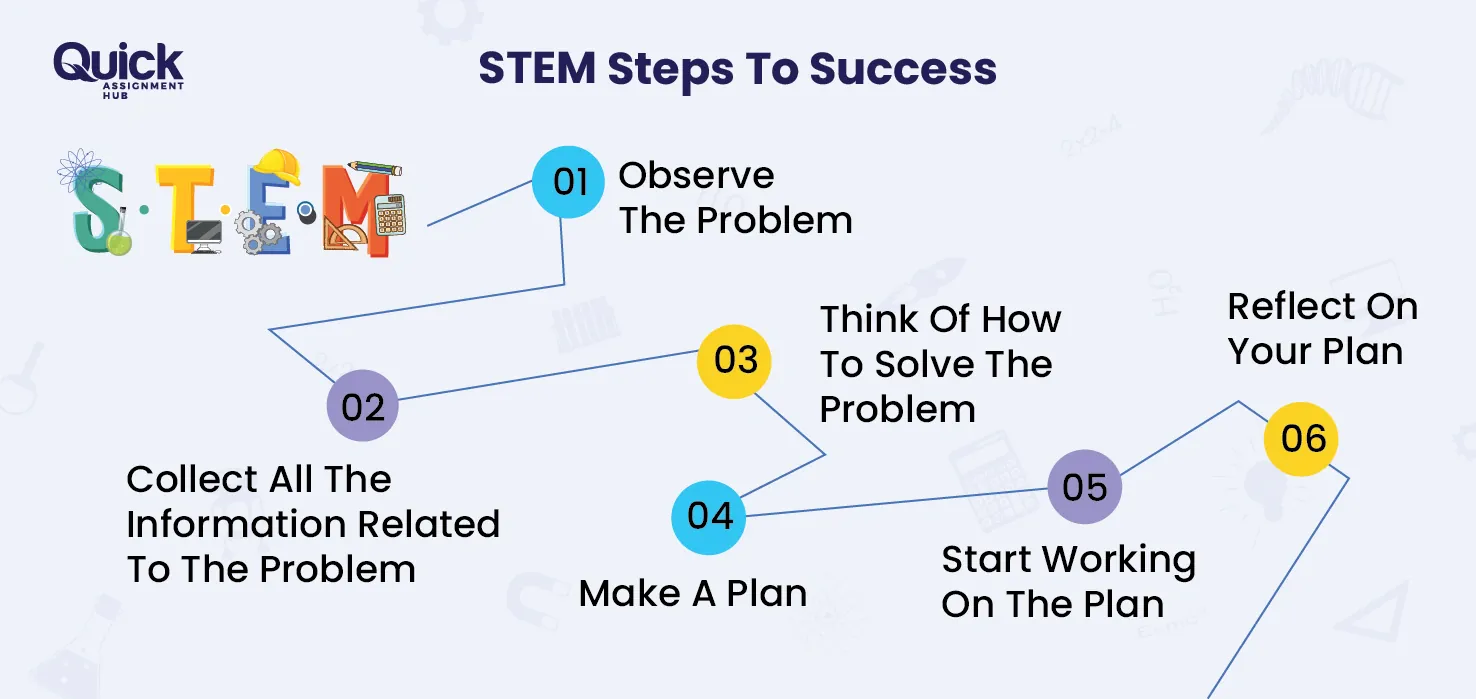
You have likely spent many late nights as a student, pulling all-nighters to cram formulas, equations and endless code into your head. The subjects of STEM (Science, technology, engineering, and mathematics) are not only demanding but also notoriously difficult. The difficulty lies in cracking a complicated physics problem, a challenging maths problem, or a problem in a piece of code.
The good news? You can make your STEM work easier and avoid being stressed out. You just need the right strategies. Throughout this blog, you will be guided on how to approach your physics, math, and coding assignments practically, managing them with less stress and more clarity.
Physics is frequently used in combination with theory and mathematics. When physics tasks are assigned to you, you can make them easier by following the strategies given below:
Break Down The Concepts: You do not need to know it all. Physics is like a novel, and you have to begin with the fundamentals of motion, force, or energy before you can plunge into the problems of high-technology use.
Visualise Problems: Draw diagrams, free-body charts and graphs to explore the bigger picture. Visualisation helps link things in the real world to the abstract world.
Practise With Everyday Examples: Think of how much force would be required to move a chair or the speed of a cricket ball. Applying physics to the real world makes the subject more accessible and less intimidating.
Master Formula Sheets: Create a brief formula sheet for quick revisions. Group formulas together, such as kinematics, dynamics, or electromagnetism.
Leverage Online Tools: Simulations such as PhET or web-based platforms, or assignment assistance, may help solve challenging physics problems easily.
Math can feel like an unsolvable puzzle when you do a maths task at the last minute. However, you will find it much easier when you have a proper structure in place.
Learn The Logic, Not The Procedures: It will not help if you only memorise formulas without understanding them. Centre your learning on the logic of why a solution is working.
Practice Daily: A math task is like an exercise; the more you do it, the more muscles that solve problems are built. Spend a minimum of 30 minutes a day solving questions of various kinds of issues.
Apply Step-By-Step Method: Divide all questions into small steps. Write down every calculation, even when it seems easy, as this minimises haphazard mistakes.
Work On Weak Areas: Find out which one is your weak point, whether it is algebra, calculus, or statistics and practice it additionally.
Seek Peer or Professor Support: Some maths tasks only require a friend or professor explaining the problem to save several hours of frustration.
Programming has been a stressful part of the assignment, as it only takes one misspelt semicolon to destroy hours of work. When working on coding tasks, you can do the following to cope with them:
Start By Understanding The Problem Statement: The first thing you should do before writing even a single line of code is to clarify what the program aims to accomplish. Break it down into smaller sub-tasks like input, processing and output.
Start Small And Build Up: Do not attempt to write the whole program code simultaneously. Check one functionality or loop at a time to test if it works.
Debug Smartly: Use debugging tools or print statements to trace the point of error, rather than sitting in front of the screen and staring at it.
Refer To Documentation: Formal documentation of programming languages (such as Python, Java or C++) is a godsend. Another good place to get solutions to common coding task errors is Stack Overflow.
Copy And Study Templates: Enhance your learning by reviewing properly formatted code examples, accelerating your knowledge and offering reusable templates.

Although all subjects have their own set of challenges, some common strategies apply to all sorts of STEM assignments:
Time Management: Break your tasks down and give yourself a deadline on each part. Do not wait to complete everything in one night.
Stay Organised: Use notebooks, digital folders, or applications for various subjects and topics. The retrieval is quicker when it is well organised.
Use Assignment Help: Deadlines are tight, and the subject is challenging to write about. Seeking assistance from online assignment help will provide you with the necessary professional help you need and save you time.
Collaborative Learning: Study groups can be a game-changer for you. When you explain something to someone, you increase your own knowledge.
Stay Consistent: Working assignments daily is more critical than infrequent all-nighters. Only 1 hour per day will keep you ahead of the deadlines.
Don't Fear Mistakes: Any mistake is an opportunity to get to know better. Make corrections rather than sweep errors under the carpet. They point out major areas of improvement.
Addressing STEM assignments does not necessarily drain your energy. You can simplify physics tasks, solve any maths assignment, and troubleshoot code assignments without spending hours and hours of your life. Know that the greatest allies are consistency and the correct frame of mind.
However, it can get overwhelming sometimes with back-to-back classes and deadlines. This is where Quick Assignment Hub comes in. We assist you with our highly qualified team of professionals:
To offer subject-specific custom solutions that fit your needs.
Provide error-free and plagiarism-free content.
By sharing the final drafts with you well ahead of the deadline.
Therefore, when you get stuck again with your assignments, remember you are not alone; Quick Assignment Hub is there to help you.